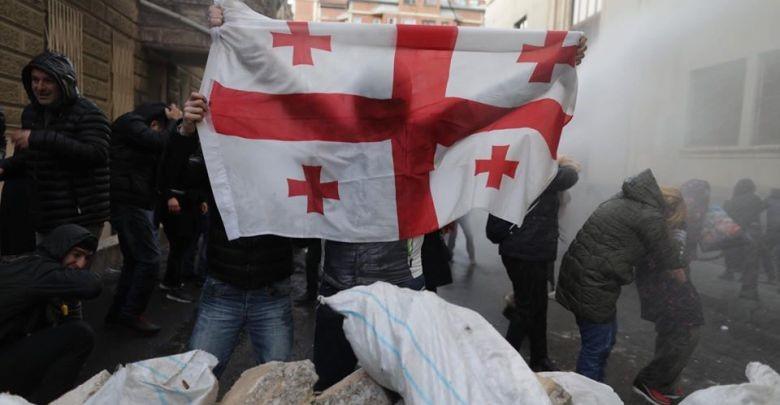Political Dialogue Facilitators Release Joint Statement over March 8 Agreement

According to Civil.ge, the facilitators of the political dialogue between ruling Georgian Dream and opposition parties that resulted in March 8 electoral reform deal released joint statement on May 11, calling upon “all sides to uphold the letter and spirit of both parts of the agreement with a view to its successful implementation.”
The statement comes after Georgian Parliament Speaker Archil Talakvadze asked the facilitators – U.S. Ambassador Kelly Degnan, German Ambassador Hubert Knirsch and chief EU diplomat Carl Hartzell – “to affirm that we have not assumed the obligation to give illegal instructions to the President, the court, and the Prosecutor’s Office – in order to secure release of Gigi Ugulava, Irakli Okruashvili, and Giorgi Rurua under the agreement” earlier on Monday.
Speaking at a news briefing earlier today Speaker Talakvadze “also appeal[ed] to them to provide an objective assessment of the role of each signatory in putting into practice the agreement.”
The opposition parties claim that the issue of releasing “political prisoners” had been one of the preconditions for the March 8 Agreement.
Corroborating this view was the statement of the Chairman of the U.S. Senate Foreign Relations Committee, Senator Jim Risch (R-Idaho) on March 10, in which he welcomed the agreement and noted: “Additionally, I applaud the promise made in the joint statement on Sunday to address “actions that could be perceived as inappropriate politicization of Georgia’s judicial and electoral processes,” and expect to see the release of politically-motivated detainees imminently”.
Georgian Dream claims it had not – in any form – committed itself to releasing “political prisoners” – contrary to opposition politicians’s “impudent speculations.”
The facilitators stated that “March 8 agreement was a historic achievement by the political forces of Georgia, intended to depolarize Georgia’s political system and create a better environment for the October parliamentary elections following the failure of promised constitutional amendments to move to fully proportional parliamentary elections in 2020.”
“As facilitators to the dialogue, we assisted in creating a forum to build trust and allow for participants to make difficult compromises. It is not our role to make the content of those discussions public or to interpret the agreement,” the joint statement underlined.
“Resulting agreement is well-known to the public. It was welcomed by Georgians and the international community alike,” noted the Ambassadors.
“We note that this agreement is composed of two parts — one focused on the election system and the other on addressing the appearance of political interference in the judicial system,” stressed the facilitators, adding that “we call upon all sides to uphold the letter and spirit of both parts of the agreement with a view to its successful implementation.”
 Latest news
Latest news Latest news
Latest newsGreece Plans to Exclude Turkiye from Future Defense Contracts
20.Feb.2026
U.S.-Based Mars Launches Major Investment Project in Kazakhstan
20.Feb.2026
Parliamentary Elections 2026 in Armenia as a Geopolitical Referendum
20.Feb.2026
Russia and Ukraine Fail to Reach Agreement in Geneva
19.Feb.2026
The South Caucasus in U.S. Foreign Policy: Implications of High-Level Visits for Russian and Chinese Regional Aspirations
18.Feb.2026
Ukraine Imposes Personal Sanctions on Belarusian President Alexander Lukashenko
18.Feb.2026
72% Against the Authorities: Economic Dissatisfaction Hits Record Levels in Turkiye
17.Feb.2026
Bulgaria Strengthens Defense: First American Stryker Vehicles Delivered
17.Feb.2026
Moscow Criticizes Plans to Build a U.S.-Backed Nuclear Power Plant in Armenia
16.Feb.2026
Washington expects Tbilisi to strengthen ties amid regional changes
15.Feb.2026

 28 Feb 2026
28 Feb 2026









